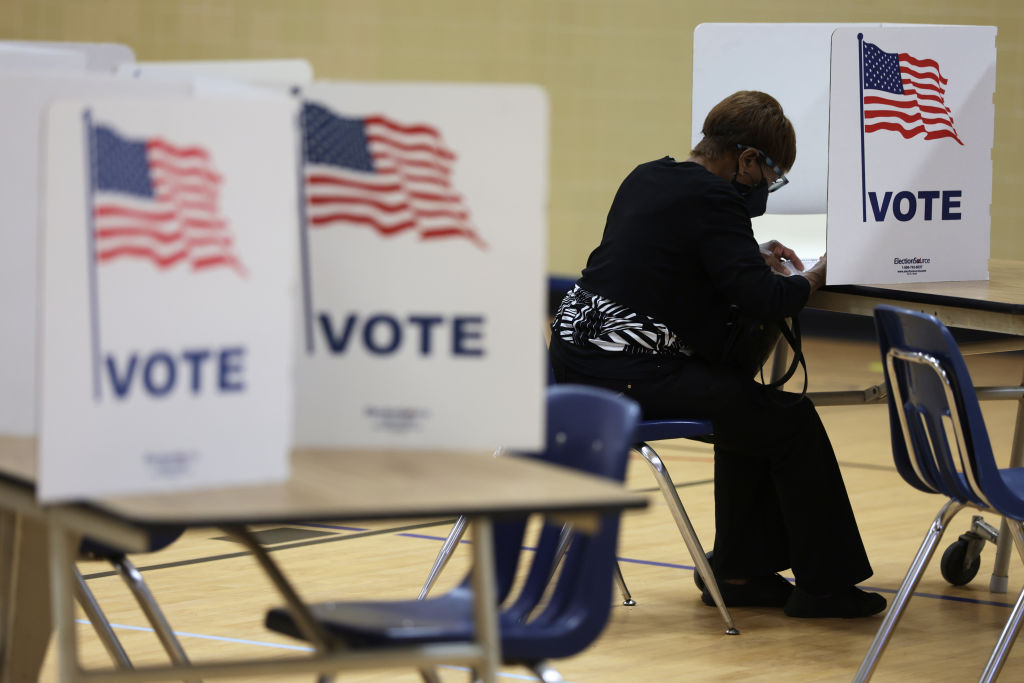
If you watch a political campaign ad, listen to television pundits, or look at newspaper headlines, it’s clear that climate change has once again fallen off the political radar heading into this November’s midterm elections. In a way, this makes sense. The Supreme Court decision eliminating a constitutional right to abortion, rampant inflation, and concerns over crime all make for more obvious political talking points.
But, if you look beneath the surface, there’s a clear case to be made that candidates talking about climate change on the midterm campaign trail can pay dividends. While climate change may not be the top concern for most voters, a string of research shows that the issue has the ability to excite key voting blocs, including voters of color and young people, that can shift elections.
“This is a base-vote motivator, for sure,” says Rosa Mendoza, senior director at the Global Strategy Group research firm. “It is actually a swing issue as well, it impacts likely swing voters in this upcoming midterm.”
A version of this story first appeared in the Climate is Everything newsletter. To sign up, click here.
To understand how climate can motivate voters, it’s helpful to start with a look at how voters of color see the issue. For years, polling has consistently shown that voters of color are more concerned about climate change than their white counterparts. A 2020 poll from the Yale Program on Climate Change Communication, for example, found that 69% of Hispanics and Latinos, and 57% of African Americans were alarmed or concerned about climate change compared to just less than half of white Americans.
A recent memo from the research firm Global Strategy Group and Green 2.0, a group that advocates for diversity in environmental activism, builds off that finding. It shows both that a majority of voters of color rate climate change as a top concern, and that a significant share of them are motivated to do something about it. The poll, conducted in late September and early October, shows that Asian and Pacific Islander voters, Black voters, and Hispanic/Latinx voters all showed an above-average concern about climate change. That concern translates into voting behavior: 62% of voters of color overall said that they are more likely to support a candidate who prioritizes climate. A smaller—but still significant—share of voters of color say they are motivated to get more involved.
“If candidates aren’t talking, if they’re not reaching out and engaging on environmental issues, they are really losing out on a very excited, motivated, and optimistic group,” says Andres Jimenez, executive director at Green 2.0.
There’s a similar dynamic for young voters. For years, surveys have shown that young voters are far more concerned about climate change than their older counterparts, something reflected in youth activism on the issue across the country. Global Strategy Group and Green 2.0 found that 75% of young Americans are more likely to vote for a congressional candidate who has prioritized addressing climate change. Moreover, the research finds that young voters are more likely to support candidates who backed the Inflation Reduction Act and other climate efforts.
The job of any elected official includes dealing with multiple issues at once; it seems there’s a good case that they should juggle multiple issues—including climate—on the campaign trail.
More Must-Reads From TIME
- The 100 Most Influential People of 2024
- Coco Gauff Is Playing for Herself Now
- Scenes From Pro-Palestinian Encampments Across U.S. Universities
- 6 Compliments That Land Every Time
- If You're Dating Right Now , You're Brave: Column
- The AI That Could Heal a Divided Internet
- Fallout Is a Brilliant Model for the Future of Video Game Adaptations
- Want Weekly Recs on What to Watch, Read, and More? Sign Up for Worth Your Time
Write to Justin Worland at justin.worland@time.com